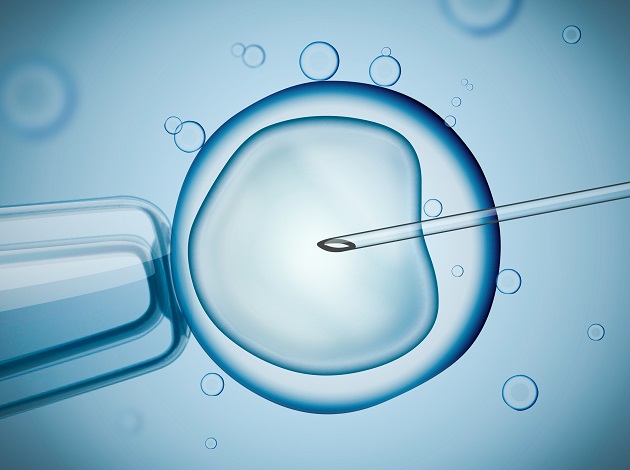This course is part of the RCOG Core Knowledge series.
Assisted Reproductive Technology (ART) is a blanket term used to describe technologies that help a person or couple conceive with the assistance of medical intervention. Examples of assisted reproduction are:
- Intrauterine insemination (IUI)
- in vitro fertilisation (IVF) - one of the most commonly used and successful treatments available
- IVF with intracytoplasmic sperm injection (ICSI)
- the use of donor sperm (donor insemination) or eggs (egg donation) or embryos (embryo donation)
- vitrification.
The first pregnancy after the fertilization of a human egg in vitro and the first birth from an in vitro-fertilized embryo were reported in 1976 and 1978, respectively. Since then, more than five million pregnancies have been achieved worldwide by IVF and its modifications, known generically as assisted reproductive technologies (ARTs). As experience has accumulated, success rates have increased, and the indications for these procedures have expanded, such that ART now accounts for 1 to 3 percent of live births in the Europe and United States.
The average age of first-time mothers across the EU increased from 27.6 years in 2006 to 30.2 years in 2022, and the mean age of childbearing has been increasing consistently in Europe since the 1980s. Women under 30 have an 85% chance of conceiving within one year, compared to 66% by age 35 and 44% by age 40, and fertility decreases dramatically after this.
In response to concerns about how rapidly the technologies were developing, in 1991 the UK created the Human Fertilisation and Embryology Authority (HFEA) through the Human Fertilization and Embryology Act 1990 (HFE Act). This was the first statutory body of its kind in the world. The HFEA regulates and inspects all UK fertility clinics and is dedicated to licensing and monitoring the fertility clinics and all UK research involving human embryos, and providing impartial and authoritative information to the public. The introduction of guidelines into clinical practice in general and in assisted reproduction in particular has led to an ever-increasing role for an evidence-based approach to the provision of these services. Clinical guidelines for the assessment and treatment for people with infertility problems were published by the National Institute for Clinical Excellence in 2004 and later updated in February 2013 to streamline services and avoid unnecessary waste of resources. The impact of the HFEA, the Royal College of Obstetricians and Gynaecologists (RCOG) and National Institute for Health and Care Excellence (NICE) publications on the management of the infertile couple has been considerable on UK practice.
In this course, many of the treatment choices and their suitability will be based on the RCOG and NICE publications and the more recent published literature.
When you have completed this course, you will be able to:
- outline the suitability of assisted reproduction treatments for the different diagnostic categories
- explain the principles of assisted reproduction treatments and their associated psychological stresses
- describe the complications associated with assisted reproduction treatments and their management
- summarise the outcomes and success of the different treatments
- identify pregnancy-related problems following assisted reproduction treatments
- identify fetal and neonatal complications following assisted reproduction treatments.
Dr Archana Ranganathan (2025)
Dr Deepthi Lavu MRCOG (2019)
Deepthi Lavu is an NIHR academic clinical Fellow in obstetrics and gynaecology. She undertook a Masters in Obstetrics and Gynaecology at Keele University, Stoke-on-Trent and is a co-inventor of the PreMentricS smartphone app which is currently being validated as a clinician’s aid in diagnosing premenstrual disorders. Her research interests are in relation to diagnosis and quantification of menstrual symptoms, big data and infertility. She is an editorial board member for the eLearning core knowledge tutorials, and an executive committee member of the British Society of Biopsychosocial Obstetrics and Gynaecology.
Dr Kanna Jayaprakasan MD, DNB, MRCOG, PhD (2019)
Subspecialist and Honorary Associate Professor in Reproductive Medicine/Consultant Gynaecologist, Royal Derby Hospital, Derby and University of Nottingham, Nottingham.
The content of this course relates to the following Capabilities in Practice (CiPs) and key skills:
CiP 1: Clinical skills and patient care
Relevant to all key skills
CiP 9: Emergency gynaecology and early pregnancy
Manages complications of treatment
CiP 11: Non-emergency gynaecology and early pregnancy
Manages subfertility
Manages abnormal vaginal bleeding
CiP 12: Non-emergency obstetrics
Manages conditions arising in pregnancy
CiP 13: Non-discrimination and inclusion
Mental and physical health associations
Further details about each CiP can be found within the O&G Core Curriculum 2024 Definitive Document, available here.
Product Details:
Product Name
Price
Assisted reproduction - 12 Month Access
£64.80
Login to purchase
| Product Name | Price | |
| Assisted reproduction - 12 Month Access | £64.80 | Login to purchase |

